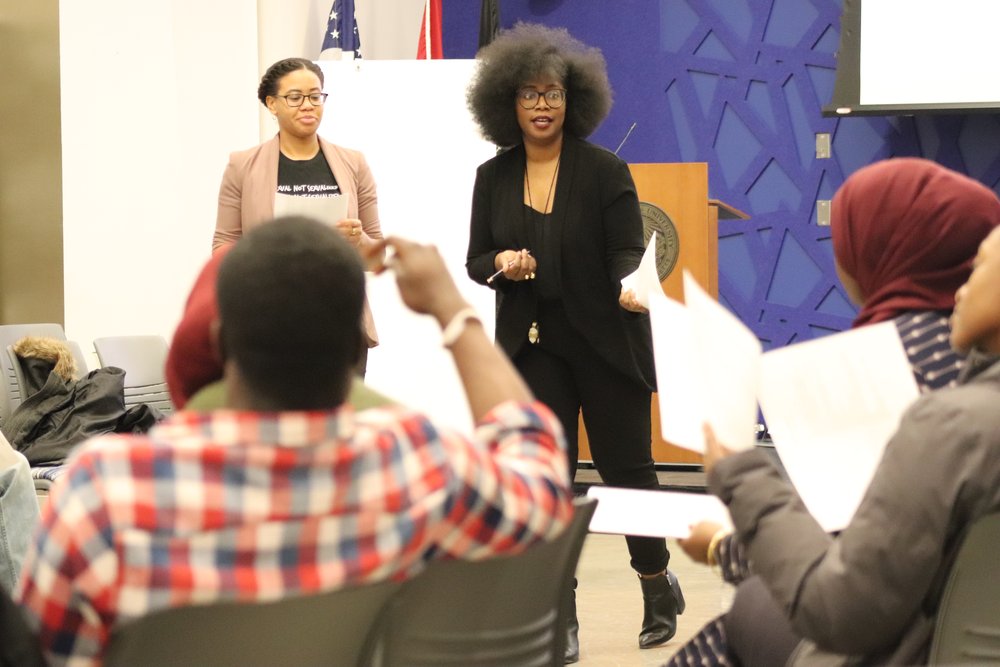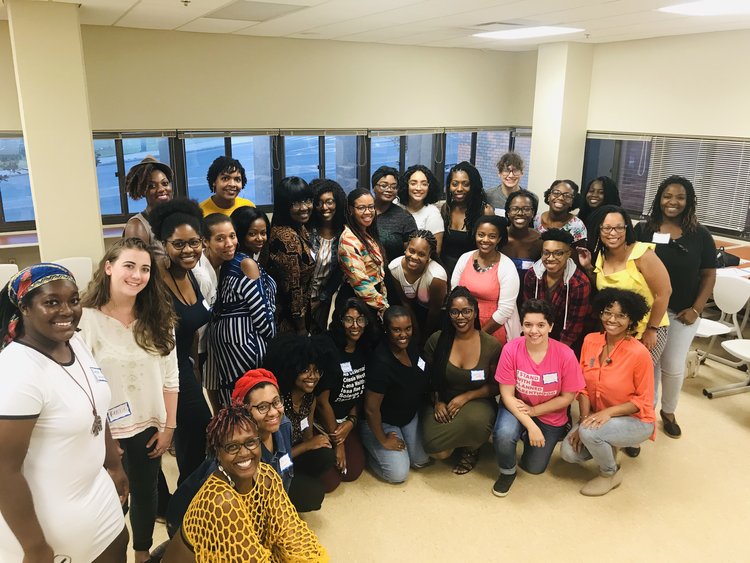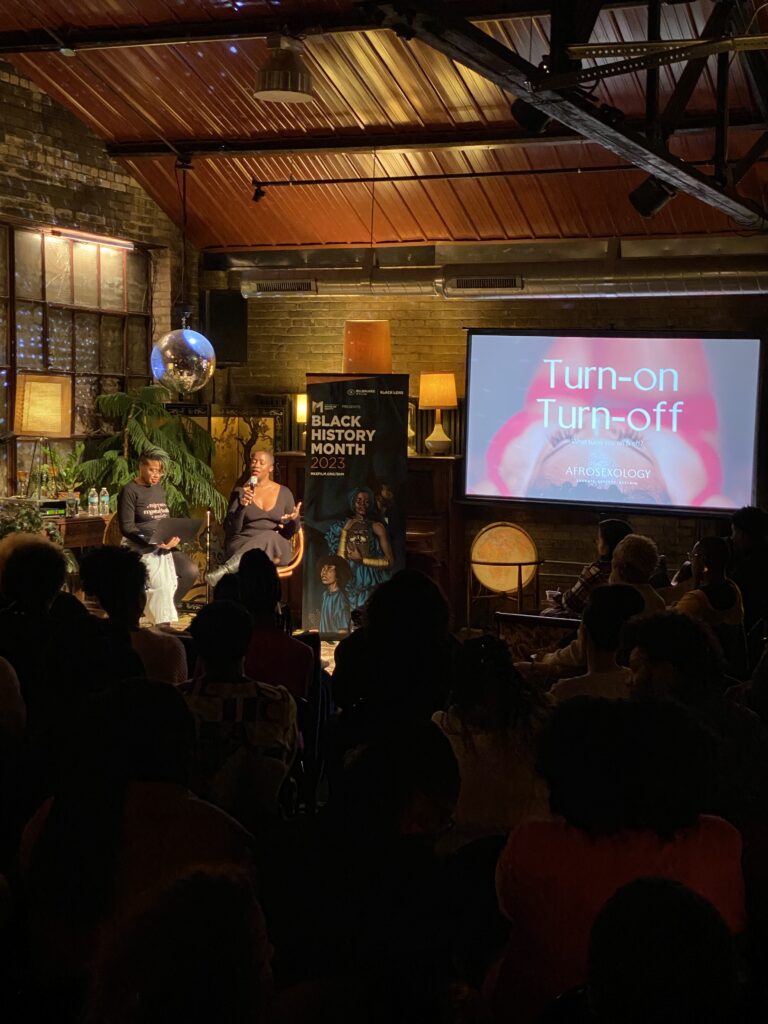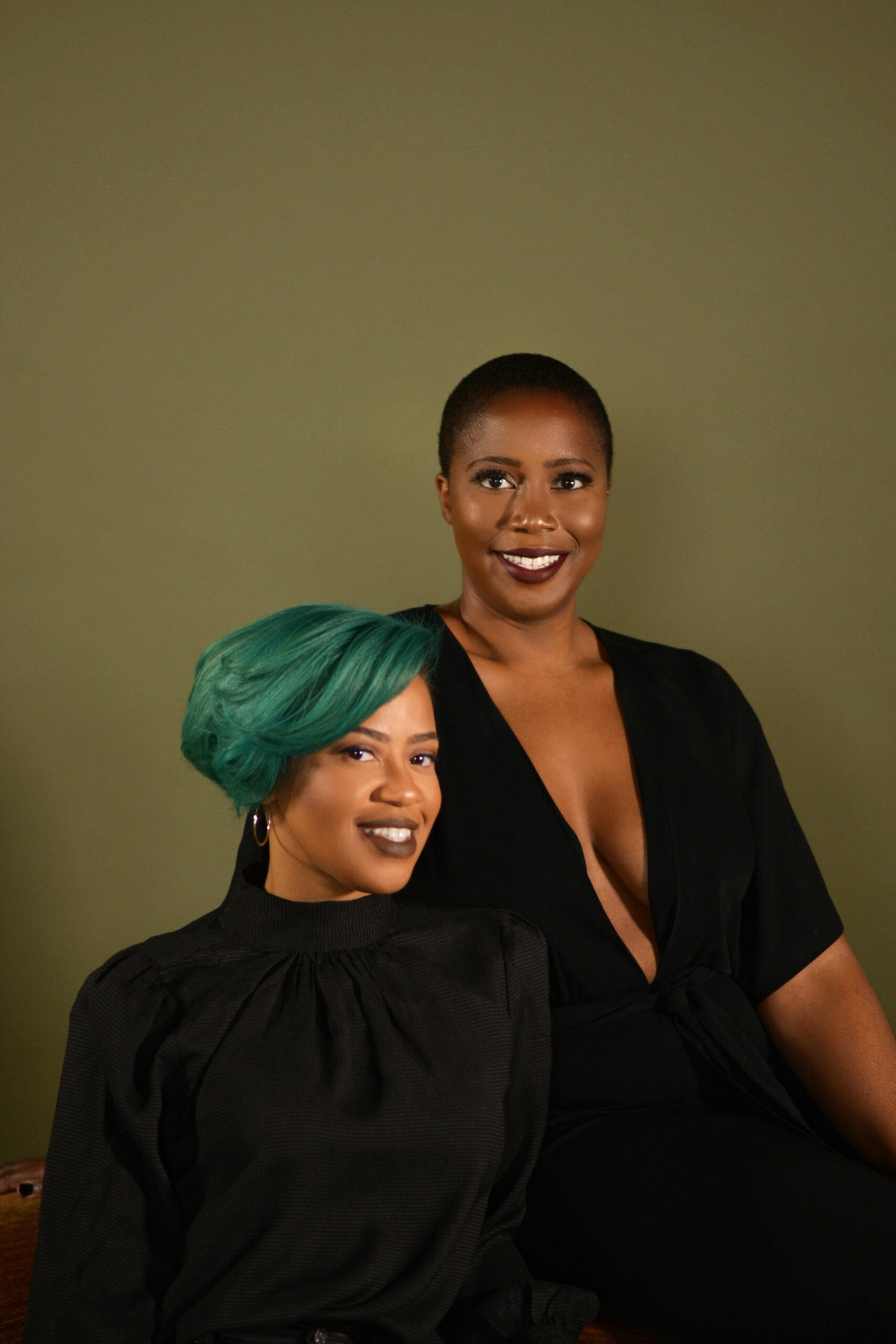Afrosexology founders’ and sex positivity educators, Dalychia Saah and Rafaella Fiallo met in graduate school. The two found a safety net in each other when it came to talking about their personal desires.
Now, years later, the duo teaches Black people the importance of sexual education focused on personal desires, sex therapy, and intimacy. With over 135,000 followers on Instagram, Saah and Fiallo utilize social media to provide gems to those willing to explore their bodies without feeling shame or guilt.
Saah and Fiallo hosts online workshops to promote sexual liberation and dismantle biases. Saah and Fiallo spoke with 21Ninety about the mental notes needed to improve sexual confidence.

21Ninety: It’s been almost 10 years since the birth of Afrosexology. Did you guys believe Afrosexology would empower black people to feel great about their bodies?
Dalychia Saah: I mean, I think we hoped! I remember our first year we were like, “Are Black folks gonna talk to us? Are they going to be in a space and talk about things that feel vulnerable and really taboo?” It was really cool folks were so open, down, vulnerable and hungry for these conversations. I think that’s when we were like, “Oh, we got something here! This could be really great.” Over the years, we’ve been fortunate to hear stories from folks about how [Afrosexology] has helped them.
Approaching Gen Z and setbacks
21N: I know you host various seminars and online workshops. How do you approach sexual education for Gen Z and Millennials?
DS: Our approach for working with everyone is the same. We center on pleasure. I think a lot of the sex education has been very focused on health, fear and shaming people on their sexuality. There’s a lot of reasons why we have sex. You can tell folks all the time, “This is why you need to use contraception.”
Our approach is to create a space where people feel more comfortable to talk about the things they desire. What are our boundaries for the things we don’t want? How can we move having honest conversations about sex and centering our pleasure? Part of that is our health, but not just focusing on health.
We do need accurate information. I think one thing people love from our social media and in person experiences is they don’t feel ashamed. They feel safe to have conversations that are taboo, or hard. The experience of having a space where you can do that does empower people.

21N: Did you both face any setbacks when starting Afrosexology?
Rafaella Fiallo: For us it was, “how is [Afrosexology] going to be perceived in the face of trauma and oppression that black bodies experience?” We are taught to not prioritize our bodies and pleasure in order to be liberated in other areas. It’s really compartmentalized in a way that keeps us detached. I think a lot of folks understand the connection between pleasure and liberation. We can have both.
When you look at sex educators and sexologists, it is a certain perception. I used to question, “Do I have to present myself in a certain way? Should we be like these sexy personas? Can we show up as the cute academic experts?” There’s a lot of different messages that can get in the way if you allow it. We’ve done a good job. We can challenge these thoughts and move forward. The reception has been amazing, as you can see. So I’m just always grateful that we were able to hold space—still staying rooted in the path that made sense for us in terms of liberation and empowerment.
Liberation vs. vulgarity
21N: Do you guys believe there’s a thin line between sexual liberation and vulgarity in the images we see?
RF: I think this is a really interesting conversation. A lot of us are performing in a way that society has taught us you need to perform in order to make money, increase our visibility, for people to like and buy our music. You’re expected to get attention and on one hand dress modestly to get respect. There are a lot of conversations between people saying, “I was performing sexuality in one way, thinking I was empowered. But now, I just fell into another label or box.” I don’t know if it’s necessarily a thin line. I think it definitely goes a lot of different ways.
DS: If it wasn’t for Black women musicians, I don’t know if we would have a sexual liberation movement. Ma Rainey was talking about sex. There were women who were like, “I like sex. I like having a lover. Khia’s “My Neck My Back,” was so transformative for me.
We don’t give these women credit for how they speak to desires that go against what we have been conditioned to think we’re allowed to ask. At the same time, I do feel a lot of us are pressured to perform in a certain way because it gets results. So it does become confusing.
There shouldn’t be only one way of being sexually liberated. If sexual liberation looks like being celibate, go for it. If sexual liberation looks like having sex on stage in front of thousands of people, go for it. We want you to feel like you’re making the decision for yourself not because you’re being coerced.
Hypersexualized, fetishized
21N: Do you believe in being hypersexual?
DS: There’s a difference between being sexual and being sexualized. Black folks are often sexualized. I don’t know if I believe in the idea of hyper and hypo sexual. I think it speaks to this idea that we should all be sexual in the same way. Mismatched desire is frequent in relationships. Some people are asexual, kinky, and polyamorous and like to have a lot of sex. I think one of the ways that oppression works is putting us in these binaries all the time. A lot of the marginalized groups get hyper sexualized or hypo sexualized.
RF: A person who identifies with some type of hyper sexuality, is feeling a sense of being out of control, using sex to reclaim their body in response to sexual trauma or abuse. Someone feeling confident, autonomous and setting standards, with who they want to sleep with. To someone else they’re hypersexual. We have to be mindful. Everyone’s not a clinical person to label people. We just over use these terms, and make people question, “Oh, there’s something wrong with me?” No. You like sex. You’re doing it safely and that’s fine.

21N: In society, curvy Black women have been sexualized and fetishized but not necessarily loved for their bodies. How do you guys encourage plus-sized women to stay sexually liberated when their bodies are pretty much policed especially in our community?
RF: Yo, people’s bodies are so heavily policed. There’s so many standards for feminine, identified folks. You can’t be too skinny. You can’t be fat. You gotta be curvy or slim thick. It’s just like all these expectations. You can’t just have a body and expect that people will desire you.
We can’t fight against the system because there’s no winning, you just have to accept everybody for their bodies. These new standards are always changing. When it comes to what your body is supposed to look like, let all that stuff go.
DS: I grew up in the South. At a very young age, I was made to feel like my body was the problem. Not the older men in the church who were hugging me for too long. I think the work for all of us is to re-center the truth. We deserve safety. We deserve belonging. We deserve to feel loved. We deserve pleasure, which is our power.

Self love
21N: On a little lighter note, can you please define the power in self pleasure?
DS: We have been taught from a really young age to prioritize relationships with others more than ourselves. We have been taught to prioritize male pleasure. Many don’t even expect to have an orgasm. Solo sex teaches us you don’t have to prioritize others. We got to take back the power that we’ve been taught to give to others. You need to know your body.
Older women have lived their lives not having orgasms and are having interactions with their bodies that are not pleasurable. How does that translate to the rest of our lives? Studies show that the pleasure gap in heterosexual women having orgasms correlates to the pay gap. I think there’s a lot of skill in understanding our body.

21N: What do you want Afrosexology’s legacy to become?
RF: You know Kleenex means tissue of all kinds, that’s what I want Afrosexology to be when people say Black sex education. I want people to hear Afrosexology and say, that’s where you go.
This article has been edited and condensed for length and clarity.
